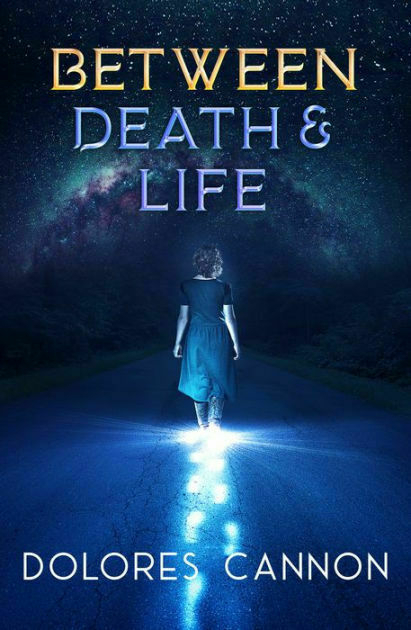Recently I read:
The left is missing out on AI: ‘…ceding debate about a threat and opportunity to the right.’
In 1984, An Unemployed Ice Cream Truck Driver Memorized A Game Show’s Secret Winning Formula. He Then Went On The Show: …and became rich, for a while.
📽 Watched Civil War.

Set in a presumably near-future time - I suppose 2025 would be a reasonable guess - we see that the US has descended into another civil war. Not a figure of speech, but an actual war with armies, militias and the like.
A definitely-not-Trump President sits in the White House broadcasting to everyone about how he’s about to have the greatest military victory ever seen, everyone says so. Whilst elsewhere, several well-equipped but uncoordinated secession movements - at least Texas, California and Florida if I remember correctly - fight what’s left of the federal military, presumably to gain their independence and remake America into what they think it should be. Which is often a fairly unpleasant vision.
Anyway, we follow a team of war photo-journalists (Reuters and the NYT still exist in this world, at least to some extent) who set off to try and make it to the White House to try to photograph and interview the president for the first time in several months. Washington DC has been made basically impenetrable at this point. And traveling through the rest of a violent, impoverished, suspicious United States isn’t an easy journey.
There’s not a whole lot of backstory. Of course if you remember the January 6th invasion of the US Capitol building you might not really need one, although personally I was a little disappointed to not get to see the buildup and transition, political and social.
The film does seem to take some care not to pit an army of obvious goodies against one of cartoon villains; few people come out looking all that good or virtuous. One wouldn’t necessarily think a California secession movement would politically have a ton in common with a Texas one as it stands today.
In practice, it actually reminded me quite a bit of a non-zombie version of a show like Walking Dead. Very much an action film, albeit one with emotional resonance given the very well done depiction of a war torn US which, apart from being disturbing in its own right, wasn’t a million miles away from scenes one sees from the current horrific IRL wars in Ukraine, Palestine and elsewhere.
The Labour party’s chief of staff Sue Gray has created a risk register - less formally known as the ‘shit list’ - that details some of major problems they will have to face if they win the forthcoming general election as expected.
Any of these could apparently’upend the political calendar', irrespective of what the winning party actually would like to do.
- The potential collapse of Thames Water
- Public sector pay negations
- Overcrowding in prisons
- Universities going under
- NHS funding shortfall
- Bankrupt local councils
It’s not pretty. Maybe that’s why Sunak appears to be doing his best to lose the election.
🎭 Excitedly awaiting ‘Standing at the Sky’s Edge’, which claims to be ‘the best British musical in decades’.
A friend reports that it is indeed very good. Plus it has some personal novelty value.
It’s set in a big imposing block of flats in Sheffield called Park Hill, which I basically lived opposite to in earlier life. It was an imposing 1960s block of an architecturally brutalist nature. Sadly I never witnessed much in the way of singing or dancing emanating from that direction back then.
In fact, the flats were unfortunately a little infamous at the time. Although certainly not as bad as the area apparently was pre-skyscraper-construction in the 1930s, at which point it was spitefully known as ‘Little Chicago’ due to the excessive rate of violent crime.
Roundabouts the time I left the area the residents had mostly been dispersed. Unfortunately not all that willingly for some I understood back then, so perhaps ‘evicted’ is a better term in some cases Some fancy developer was busy enacting its vision for a bright new (I assume gentrified) future for the structure, although it being a listed building they couldn’t do too much to its overall size and shape.
Nonetheless, I don’t know what hallucinogens the re-designers had taken when constructing their modern day Park Hill mood board; but I think I remember some artists' impressions of what we were to supposedly look forward to featuring much in the way of rainbow colours and the occasional flamingo roaming throughout the grounds of their modern-day take on utopian streets in the sky.
Apple Music attempts to adjudicate the top 100 'greatest albums ever made'
Apple Music tempts fate / goes full engagement growth hack by releasing a list of the top 100 ‘greatest albums ever made’.
To save you clicking, the top three are:
3: Abbey Road by The Beatles
2: Thriller by Michael Jackson
1: The Miseducation of Lauryn Hill by Lauryn Hill
Predictably, certain sections of the internet explode in indignant rage at the absence of their preferred artists or genres (or at its least pleasant, that the number 1 album wasn’t recorded by a White man). Personally, I’m finding a few gems amongst them that I haven’t previously given a go, so it’s certainly not all bad.
I believe the list was voted for by a set of people deemed to have some above average insight into the topic, using these criteria:
- Albums that represented a cultural moment for the artist or genre.
- Albums that were complete thoughts, not just collections of hit songs.
- Albums that thoroughly represent culture in production and lyrics.
- Albums that inspired a generation to want to create more music.
- Albums that represent the BEST in storytelling, musicianship, recording and production.
- Albums that are timeless and reached far beyond the genre categorization.
But of course taste is a personal thing. No one else’s top 100 list is going to be yours. Not to mention that your favourites are probably not predicated on whether they ‘reached far beyond the genre categorisation’.
Apple is far from the only company to attempt such a feat. Rolling Stone has done a top 500 which they’ve updated on multiple occasions.
It’s quite fascinating to see how the ‘best ever’ list changes, or doesn’t, over time and over judging panels. The Pudding has made a fascinating interactive visual essay about this, highly recommended.
So far 80 Conservative MPs quit rather than face a general election
More former big hitter Tory stars are abandoning the sinking ship. Perhaps the most surprising to me is Michael Gove, who, just a few days after proclaiming ‘Who dares wins!’ in reaction to the bizarre announcement of a general election, apparently doesn’t dare and won’t win.
We’re now up to 80 Conservatives standing down rather than fighting the next election. Can we make it 100?! For what it’s worth, the comparable figure of Tory standowns before the 1997 Labour landslide general election victory was a mere 75.
If some of this is really due to the prospect of Labour banning MPs having second jobs as The Spectator suggests, well, double good riddance. Ruling the country really should be something you focus on for more than a few minutes a day.
Sunak announces that the UK will have a General Election on July 4th
with nary an umbrella in sight, announces that the UK is to have a general election on July 4th. The date seems symbolic of…something. Perhaps his Americaphilic nature?
In case you’re wondering what the background noise is around 2 minutes in, it’s anti-Brexit campaigner Steve Bray masterfully broadcasting “Things Can Only Get Better”, a song which for Britons of a certain age and level of political interest is vividly connected to Labour’s massive 1997 General Election victory, as well as, let us hope and pray, being true at a surface level. Good stuff.
I must admit being somewhat surprised at the timing. Was he drunk? Or was it really that there was one whole week of non-catastrophic economic and migration data and, horrifyingly for the rest of us, that’s as good as he imagines it’s ever going to get.
Apparently I’m not the only one. It seems many of his own Members of Parliament, even the big famous important ones, are a bit taken aback. There seems to be rumours, some coming via Nicholas Watt, of yet more submissions letters of no confidence about Sunak and/or lots of Tory big beasts deciding they’re probably going to stand down rather than face the likely humiliation of trying to get elected when, despite on occasion Labour’s best efforts to disappoint even those of us who want to find a reason to vote for them, you’re still 20+pp down in the polls.
In fact at least 67 Tory MPs have already announced their intentions to do so - mostly well before yesterday’s announcement of the election’s date to be clear - including Theresa May, Sajid Javid, Ben Wallace and Matt Hancock.
The New Yorker suggests there was little evidence behind the conviction of Lucy Letby
An incredible story from the New Yorker about the case of British nurse Lucy Letby, a nurse - nicknamed the “angel of death” by some - who was convicted last year for the murder of 7 babies that were in her care, and the attempted murder of another 6.
But what was such a serious conviction for such a sickening crime based on? Well, if one takes the New Yorker reporting at face value then…honestly not very much. The main piece of evidence appears to be statistical in nature - basically she was in the right place at the right time, or at least most of the places at most of the right times - and highly subject to the Texas sharp-shooter fallacy.
I have no take on whether she’s guilty or not - how could I? - but the evidence seems absurdly lacking if one takes this story at face value.
Although anyone in Britain will struggle to even see the story as that page of the New Yorker website has been blocked from being accessed by any UK users due to a court order.
MP David Davis is not pleased about this, suggesting that such a block is “in defiance of open justice”. As is always the case with these sorts of blocks, the effort in any case seems a bit weird and ineffective in these days of the global internet. It’s easily viewable via a VPN or on one of the many archiving sites. This for instance is the sort of link I’m sure none of us would ever contemplate clicking on. Or, you could just buy the paper version of the New Yorker.
The randomizr package for R (and apparently Stata) provides some nice simple functions to help automate the process of randomly assigning participants to groups in for instance randomised controlled trials.
Common designs include simple random assignment, complete randomization, block randomization, cluster randomization, and blocked cluster randomization. randomizr automates all of these processes and assists scientists in doing transparent, replicable science.
OpenAI's latest model - why are we trying so hard to make these products sound so human?
Last week OpenAI, a company who never shies away from inventing something at least adjacent to the torment nexus, demonstrated their latest generative AI model: GPT-4o. The “o” stands for “omni”; whether this may be in the sense of omniscience, omnipresence, omnipotence or omnibenevolence (or all 4) is left as an exercise for the reader.
TLDR: It’s faster, cheaper and can respond to text, audio, image, and video inputs with text, audio, and image outputs in a much more “human” way.
Here it is in action:
It is of course amazing and magical, as is much of the stuff that they produce. But I’m not sure it’s entirely wise.
I can see use-cases for models that can infer something about a user’s emotions, although I would worry about even that given the emotional state of users is something that mainstream social media networks actively try to exploit.
But is it really necessary to give the model the ability to sound like it has emotions? When giving vocal responses it laughs, it jokes, it acts curious and interested, like it cares. Sometimes it seems excited. It flatters, it teases. But why? To obfuscate its artificialness?
I’m not convinced that a primary goal of AI development should be to try and produce products that are increasingly indistinguishable from humans. It’s not like the crew of the Starship Enterprise ever seemed to complain that the ship’s computer was too unemotional. The one time it did end up programmed with an emotional-seeming “personality”, Captain Kirk turned it off as soon as he could.
Once again, perhaps there are legitimate use cases for this - other than to run scams on a mass scale. But I suspect they are rare, should be carefully studied in advance, and aren’t an essential component of providing most humans with the potential everyday benefits of this technology without introducing an unnecessary layer of confusion.
It’s the least original observation available I know, but the OpenAI performance seems rather modelled after the movie Her. This film was in fact created after Spike Jonze read an article about a website that let you chat to an AI program - over a decade a go! Since then we have certainly seen people develop strong emotional attachments and possibly even love for some AI models far less “omni” than GPT 4o.
I dare say that for now the OpenAI verison will have more restrictions than “Samantha” did - but it seems similar in mode and temperament at least.
I’m sure it’ll only be a matter of time before someone runs Theodore’s lines from the script of Her through GPT-4o. I can’t say I’d be incurious about the results. Hopefully a bit more “As an AI model I cannot….” will be involved.
Here, for the committed, is the full 26 minute announcement of what’s new in the world of OpenAI:
In reassuring news, it turns out that the security code needed to get into the UK’s National Cyber Security Centre (NCSC) - purveyors of fine quality password advice - is, wait for it: 1234.
They have their reasons though. An anonymous Whitehall source informs us that:
It’s the code they give to visiting journalists as it’s all most of them can remember.
Britain has the highest rate of homelessness in the developed world
The large majority of homelessness in Britain doesn’t manifest as the stereotypical rough sleepers, but rather an increasing number of people being forced into (frequently dangerous) temporary accommodation of one sort of another - “a peripheral and fragile existence” to quote the Financial Times.
The FT goes on to reveal that Britain has an horrendously high rate of homelessness - “by far the highest rate…in the developed world”.

It was not always this way.

What happened? The FT puts it down to 3 key factors:
- Absolutely inadequate rates of housebuilding.
- An ever-diminishing social housing sector .
- An erosion of financial support for folk who can’t afford the market rate for rents.
After all, whilst much fuss about housing benefits is often made in “anti-welfare” circles, last year the IFS determined that local housing allowance has now gotten so low in comparison to rent demands that any recipient of that benefit could not possibly afford 95% of the private rental properties listed on Zoopla.
The Tortured Poets Department enters the Taylor Swift Cinematic Universe
🎶 Listening to The Tortured Poets Department by Taylor Swift.
As has everyone else, given it has broken a wide arrange of world records, including being the most streamed album in one week ever, the first album to get to 300 million Spotify streams in one day, the first to occupy the top 14 entries of the Billboard Top 100 Hot Songs chart and also sold the largest number of vinyl copies in a single week in modern times - 859,000.
The reviews seemed to me to go through phases of “this is quite good” to “actually it’s too long and repetitive” - not helped per the release of an extended 31 track “anthology” version hours after the original dropped at which point the NYT asked whether we’ve finally had too much Taylor, apparently not - to “actually there are some great moments”. That’s also roughly my trajectory so far.
It is much more in the style of her last album, Midnights, than her earlier work, so if you liked that you’ll probably like this. Very, very occasionally some of the lyrics felt just a bit like they were made by ChatGPT - but mostly I found it pretty cool and clever. And besides, any bits I didn’t understand are probably because I am no true Swiftie; I don’t know the lore.
A New Yorker article provides perhaps the best explanation of what it means to be a Swiftie that I’ve seen. Why in one of the tracks does TS appear to be trying to rhyme “wife” with “bike” when words that actually rhymed would make at least as much sense? Clearly she didn’t make a mistake that no-one noticed. Rather:
Swift obsessives know to connect “imgonnagetyouback” with “Fallingforyou,” a song by the 1975 that was written by Swift’s ex-boyfriend Matty Healy. In it, Healy sings, “I’m so excited for the night / All we need’s my bike and your enormous house.” Swift’s mention of a bike, in “imgonnagetyouback,” is therefore an intentional creative decision, like the lack of spaces in the song’s title.
Some fans have gone even further, claiming that the lack of spaces not only invites a comparison to “Fallingforyou” but to Swift’s own “Blank Space,” a song on her “1989” album. (1975, 1989—there are a lot of years to keep track of here.) “In Blank Space music video, Taylor Swift is smashing things and sings ‘Cause you know I love the players And you love the game,’ ” a YouTube user called Miranda-ry9tf writes in a comment. “In imgonnagetyouback she says ‘We broke all the pieces, but you still wanna play the game.’ ” Perhaps “Blank Space,” released in 2014, was about Healy, too?
And that stuff like this has led to a disconnect between your typical music reviewer and the more intense parts of her fan base.
Kotaku gives another taster of the parallel Taylorverse, linking to a 100 page presentation someone made to explain the timeline of her relationship with Matt Healy, all essential to fully interpret the album - at least for some folk. As the Washington Post wrote some time ago, there’s a whole Taylor Swift Cinematic Universe out there for those with the time and inclination to indulge.
The excellent ConscienHealth blog, writing about a fierce debate in the world of nutrition science, reminds us that big shadowy agenda-led corporations having paid scientists to conduct their research is not the only sort of conflict of interest we should care about when evaluating scientific studies.
We read a lot about perceptions of conflicted interests in nutrition and obesity research. Typically the focus is on financial interests. If a company funded the research, does that mean we cannot trust results that might favor business interests of that company? But experience tells us that intellectual investments can produce equally powerful biases.
Watch a new city block of Pompeii get unearthed in a new BBC documentary
📺 Watched Pompeii: The New Dig.
The BBC shows us some days in the lives of an Italian archeology team as they continue the 100+ year effort to uncover what’s under the horrific mess that the eruption of the Mount Vesuvius volcano caused to be rained down upon the city of Pompeii. in the the year 79 AD.
Much of the city, its contents and the physical remains of the poor people who were stuck there at the time has been astonishingly well preserved by virtue of it all being covered by huge layers of ash. There’s been various efforts to unearth it over the years - Wikipedia gives the modern archaeological effort a start date in the 1920s. But the very start of the process could be a lot earlier depending on when you start counting from.
However, over 100 years later, a surprising-to-me amount of it is still buried under the ash, despite the complex now being a popular tourist site. So this new BBC documentary follows a team of Italian archeologists as they excavate a whole new city block.
Discoveries abound; including potentially the world’s first ever known illustration of a pizza no less. Although the i newspaper is not entirely wrong to suggest that, whilst the discoveries themselves are exciting, it is hard at times to translate that thrill to a 3 hour documentary series where most of the work involved in getting to the discoveries consists of people meticulously digging into piles of dirt. Nonetheless, the end product certainly seems to make their toil worthwhile.
I wouldn’t want to include any more find-spoilers here, but for anyone who is interested enough in the topic to want to see what was unearthed, but not interested enough to spend 3 hours watching the process and commentary, the History Extra website lists some of the brightest and best finds. The accompanying BBC site also has some short highlights clips along with links to a virtual tour of Pompeii put together by the Open University, who were also involved in producing this documentary.
Between Death and Life shares interview transcripts from people who claim to know what happens after you die
📚 Finished reading Between Death and Life by Dolores Cannon.
Ever wanted to learn what happens after you die? Well, this is the book for you. Possibly.
The author is a hypnotherapist, specialising in past life regression. Past life regression is a method that some claim allows you to access memories of what happened to you in past lives whilst under hypnosis. Of course this means that the idea that we are something like souls that get reincarnated into several different human bodies over time must be taken for granted by adherents.That is of course enough to deter plenty of readers, at least if you’re looking for a slightly more conventional, more scientific, exploration of what we know about what happens after you die.
But otherwise, or perhaps if you’re just in a sort of sci-fi fantasy mood, then her claim here is that whilst conducting her therapy she started to notice that all her clients were basically telling the same, fairly fantastical at a glance, story. In particular about the nature of the time they claimed to spend between lives.
This observation led her to give credence to the idea that if they’re all saying it then it must be true (of course other interpretations would be possible - just because several children reported that their parents were involved in elaborate and sickening satanic rituals whilst under hypnosis didn’t make it true).
So here Cannon presents what seem to be mainly transcripts of the interviews that she conducted with her clients whilst they were hypnotised. It particularly focuses on their descriptions of the times between lives - after we on Earth would say they had died, but before they were reincarnated into a new body. The claim is that, sure, your body dies, but your spirit lives on in another dimension until such time as its ready to reincarnate into a new, usually human, body.
Her clients report a whole world - “world” is probably the wrong word - out there in a different “higher dimension” of temples, libraries, a computer room, a tapestry room and and a kind of soul hospital for those spirits who need to rest and recover from the experiences they had in the physical realm.
Whilst in her telling most animals don’t have souls in this sense, other do entities exist; things that in the Earth-bound realm we might call elementals, aliens, demons, sprites - although plenty of times in the book the person supposedly regaling their experiences notes that they can only approximate what’s going on in answering Cannon’s questions as humans simply don’t have an adequate language for it.
Then, when the soul is ready, unless you are one of the few who have risen so far through the hierarchy that this is no longer required, it consents to return to the physical realm as a different person on our planet; a reincarnation in the traditional sense. Typically this would be to reside within a newborn baby, but it doesn’t have to be.
Why would the spirit choose to return, given that human life is laborious, difficult and unpleasant at times compared to the pretty utopian experience that’s presented as what it means to live in the higher dimensions? It’s to learn important lessons. To redeem previous “karma”, a word which here is used almost entirely in a negative sense.
Perhaps last time you were on Earth you were a rude, abusive person. Now’s your chance to adopt a different lifestyle based on what you learned from reviewing your bad behaviour in the spiritual realm. To make up for what you did, to fix the harms you caused.
A key tenet of her world view is that we all agreed to whatever happens to us in this life prior to reincarnation. With the help of advanced soul guides, a school, a library and the use of a computer we figured out what went wrong in our previous life and hence what experiences we need to have this time round in order to overcome or redeem our past ways of physical living and which other beings we’d like to meet again in this life to help us do this. Often these will be people infused with souls you met in prior lives.
With all that info the various spiritual guides and extra-dimensional computers recommended our assignment to the (mostly) Earth-bound life that would most meet our needs to lead.
This idea of prior consent has some, to me, unpleasant implications. But it does bring a kind of comfort to some as far as I can tell insomuch as if you’re having a tough time then it’s something that was planned, agreed to by you beforehand and from which you’ll gain substantial (karmic) benefit from in the long term. There’s a reason for everything and it’ll serve your soul in the long term. The worse the experience the more you’ll end up benefiting from it. This got a somewhat harder to stomach for me when topics like Hitler come up.
In a way there’s a semblance of some branches of Christianity here, with a kind of “suffering is good and necessary for redemption” and a kind of original sin type ethos. In fact figures from the major world religions - Jesus, Bhudda et al - are part of the story. These were folk that simply had very “advanced” souls embedded within.
There’s not much here to convince anyone of the reality of these ideas who isn’t already a believer or advocate of some of the underlying principles. Her claims are rather wild compared to what passes for mainstream thought - and indeed much non-mainstream thought - on the matter. Those who don’t really identify with much that falls under the modern usage of the term “spiritual” might not get much more out of this than some potentially interesting tales. If phrases like “astral plane” or “advanced souls” grate on your nerves you’ll surely not enjoy it. That said, the book does seem to have its fair share of true believers who find a great deal of solace in what it tells.

The Rwanda bill went through, but that doesn't make it OK
From the combined forces of Freedom from Torture, Amnesty International UK and Liberty:
This shameful Bill trashes the constitution and international law whilst putting torture survivors and other refugees at risk of an unsafe future in Rwanda.
…
It’s time for those in power to stop demonising and scapegoating some of the most vulnerable people in our society, and to restore the right to asylum in the UK and uphold vital international protections.”
Yes, we’re talking about the Rwanda immigration scheme / scam again I’m afraid.
The government may have, appallingly, finally forced the ‘Rwanda bill’ - the one that magically legislates Rwanda into being a perfect wholly and indisputably pleasant dream destination for the UK to (probably illegally) abrogate its international responsibilities and remaining semblance of human compassion to - through the system.
But they still have to find planes to actually put these poor beleaguered seekers of urgent respite on to - and the UN is warning airlines and aviation operators that, even though the less well-hinged members of our government say that This Is Fine, other organisations do actually still need to try to avoid breaching international human rights laws.
The Conservatives may not care about tiny little minor issues like becoming international pariahs - but they are of course not the only show in town.
Publishers are receiving a deluge of AI-generated dross
The low-effort AI-generated botshit has presumably reached such a volume in the books world that Amazon has decided to impose a limit such that authors may only publish 3 books per day (!) onto its site. Maybe they didn’t enjoy that point in time that pure nonsense started topping their Kindle book charts.
Any humans that can in fact author four high quality books a day might suffer. Luckily they probably also don’t exist.
Smaller companies are obviously suffering more. Last year, the famous Clarkesworld sci fi magazine had to stop accepting submissions for publication because they couldn’t handle the volume of AI generated guff. Their competitors, Asimov’s Science Fiction and The Magazine of Fantasy & Science Fictions are seeing similar behaviour.
Some services that help transfer your music library and playlists between different music streaming services
I’m slowly weaning myself away from the use of the mainstream music streaming service - Spotify et al - both due to the problematic effects they increasingly seem to have on the industry and the now-radical idea that I might want to permanently own my music collection.
That said, I’m not there yet, and perhaps there will always be a role for them when it comes to, for instance, modern-day music discovery. Problematic or not, they do indisputably provide tremendous accessibility to a music library far beyond the ability of most individual humans to cultivate.
In the mean time, I wanted to reduce the fragility of my situation by replicating my library as far as possible between more than one service.
If, for instance, I only have my music libraries in the walled garden of Apple Music, there’s a (possibly paranoid) feeling that should they ever close my account, I feel compelled to close my account, some bug means they lose the details of my collection or I simply can’t afford the subscription any more then not only can I obviously no longer listen to my hand-picked collection, I also entirely lose access to what that collection was in the first place. Which albums I added to my libraries, which tracks I liked, the algorithm that suggests new music to me, all gone.
I don’t think there’s much I can do about the latter, algorithms are virtually never accessible or portable in their current instantiation. But in terms of one’s library and playlists, it is possible to try and recreate that in another service, say Spotify.
This will never work perfectly as another issue with the services is they don’t necessarily have the same music. If for instance you switch to Spotify from Apple or vice versa you may simply not have the option to listen to some of your preferred tracks, they’re just not on the service. Such is the penalty of not owning your collection. However, realistically, if your collection is vaguely mainstream most of it probably exists in most of the big services.
However, these wannabe-prison services do not want you to leave, so offer no universal way to export or import a useful list of what is in your collection that I can see. Data portability is probably the last thing they want - and something I’d love regulators to enforce one day. But for now by default it’d be a manual effort, laboriously going through everything you care about on one service and trying to search for it on the other service, saving to library, liking, whatever.
This is fairly untenable, or at least very tedious, if you have anything beyond a fairly small collection. But there are third party solutions that attempt to solve this problem by automating the search-and-save operation. You would have to give them access to the accounts you wish to transfer from and to, but if you’re comfortable with this then they can attempt to automate copying your libraries and playlists from one service to another.
In my case, I’m a big listen-to-albums fan so I was most concerned in copying my library of albums across to a new service. Let’s assume Apple Music to Spotify to take a common example. Importantly. I wanted my album library to appear as actual albums in Spotify, not as playlists containing the album’s songs. Some people prefer the latter of course or only use playlists in the first place. There’s no right way to do this kind of stuff.
So below is a list of services that promise to do this kind of thing that I compiled from a few searches for apps and services that can automate this transition, including what at-a-glance appeared to me as being their scope and their costs.
There’s a fairly wide range of pricing and features. Most are subscription based, although if you only want to do this kind of thing once you could just buy one month. You will generally have to pay if you have anything beyond a very small library, although many have a limited free version you could test to see how well it’s going to work for you.
A common feature some have is a continual sync of libraries across services. I was mainly interested just in testing a one-time operation at present but I can imagine use-cases for the latter.
Whilst my examples above all about Apple Music and Spotify, many of these products handle a much wider range of services so don’t let that put you off.
None of these are recommendations as such as I haven’t yet tried them. But as a starter list, here’s some options I found, their taglines, pricing and what their homepage indicated to me is their rough feature-set, in no particular order.
Playlists.cloud
Playlists.cloud - “Connect to your favorite music streaming services, transfer your music playlists between them, easily generate backups, and more.”
Features:
- Supports Apple Music and Spotify
- Works with playlists only
- Transfer your playlists between Apple Music and Spotify, either as a one-off or a continuous sync.
- Transfer your playlists from one account of a given service to another account of the same service.
- Create new playlists by uploading a CSV file
- Export playlists into a CSV file.
- Free of charge.
SongShift
SongShift - “Simple Music Transfers and Sharing”
Features:
- Supports many services: Amazon Music, Apple Music, Deezer, Discogs, Hype Machine, LastFM, Napster, Pandora, Qobuz, Spotify, TIDAL, YouTube.
- Works with playlists, songs or albums.
- Transfer your music from one provider to another either as a one-off or a continuous sync.
- Share your playlists with anyone on any supported platform
- Free and paid version ($9.99 per month, $39.99 per year, $59.99 lifetime). Not immediately obvious what the limits on the free version are except for being slower and able to connect more services at once.
Soundiiz
Soundiiz - “Transfer your playlists and favorites”
Features:
- Supports 43 services, including Spotify, Apple Music, TIDAL, Amazon Music, YouTube Music
- Works with playlists, albums, artists, and tracks - although some services may not work with some of these.
- Transfer music between services either as a one-off or a continuous sync.
- Create smartlinks to playlists and releases you can share.
- Generate playlists using artificial intelligence.
- Import and export your playlists from / to file.
- Free and paid version (£4.5 per month, £36 per year). Free version looks to be limited to dealing with playlists, one at a time, and only up to 200 tracks per playlist and one active sync.
Free Your Music
Free Your Music - “Transfer, sync & move your music library”
- Supports many services including Spotify, Apple Music, TIDAL, SoundCloud, Deezer.
- Works with playlists, liked songs and albums.
- Transfer music between services either as a one-off or a continuous sync.
- Back up playlists in cloud.
- Free and paid version. Free version lets you transfer up to 100 songs and 1 playlist, or 300 songs if you provide an email. Paid services include one-off £10.99 for “basic” or £34.99 per year / or £4.66 per month for premium. Basic version doesn’t allow automatic syncing or backup.
Tune My Music
Tune My Music - “Transfer Playlists Between Music Services”
- Supports many services including Spotify, TIDAL, Apple Music, YouTube, Amazon Music and Deezer.
- Works with playlists, favorite songs, favourite artists, favorite albums.
- Transfer music between services either as a one-off or a continuous sync.
- Share your music with friends who use other music services.
- Upload songs to your library via a file (I think this must surely mean uploading a playlist, not a song itself!).
- Backup your music library (again I think this means your playlists etc. via exporting a CSV - not the music files themselves).
- Free and paid version ($4.50 per month or $24 per year). Free plan limits you to transferring up to 500 tracks, no syncing.
Playlisty
Playlisty - “The Playlist Tool for Apple Music / Spotify”
- Has one app that works to get music into Apple Music and a different one to get music into Spotify.
- Works with playlists, mixes, liked tracks and albums.
- Can transfer playlists from several music services into Apple Music / Spotify, or also import them from text, weblinks or various file formats. You can browse other people’s playlists from various music sites too.
- Can export playlists to a file.
- Free trial version lets you create playlists up to 20 tracks. Paid in-app purchase of a one-off $2.99 unlocks other features.
Playlistor
Playlistor - “Convert playlists between Apple Music and Spotify”
- Supports Apple Music and Spotify
- Playlists only
- Paste in the URL of a playlist and the site will convert it to the appropriate services, no signup required.
- Only one playlist at a time. It seems really designed as a useful service to share a single playlist with someone who uses another service, not designed to transfer your library from one account to another so wasn’t actually suited to this list.
- Free
'Ghost Hunter' details some of Hans Holzer's spooky cases
📚 Finished reading Ghost Hunter by Hans Holzer.
Hans Holzer was a parapsychologist and a ghost hunter. As well as a prolific author, having written over 120 books on this kind of subject. Perhaps most famously, he was involved in investigating the “Amityville Horror”, which of course there are more than a few films about now. He also hosted the TV show “Ghost Hunter” at one point.
This book sees him chronicle a few of his adventures into ghost hunting. The typical set up is that he’ll hear of some unexplained ghostly type phenomena; a person living in a home with weird noises or other more disturbing occurrences, that type of thing. He’ll go recruit a medium, and off they set to visit the location in order to hold some kind of seance.
The medium invariably falls into a trance whilst he, via the medium, tries to communicate with whatever ghostly presence. The hope is to resolve whatever the problem is that’s causing the spirit to feel inclined to annoy or scare the living humans around them. In general he reports being successful at this.
He wants us to believe he’s doing this in a scientific way, although some of his peers were sceptical. I don’t think it’s a book that’s going to change anyone’s mind about whether ghosts or ghostly experiences are “real”. But nonetheless it’s a fun series of somewhat spooky short stories, along with some commentary on his methods and the tremendous value he puts on mediums during such activities.

Happy to see that even the Norton anti-virus homepage totally acknowledges that their prices get crazy expensive if you let the subscription renew. Next step: how about don’t do that scammy behaviour in the first place.

Most people are probably fine without specific antivirus software now Windows comes with one built in. But if you do feel you need one, then never a license renew before seeing if buying as a new customer is far better value. With Norton, it absolutely is, and it’s far fro alone.
Hundreds of IPCC scientists think we'll being living in an environmental semi-dystopia by the end of the century
Nearly 80% of the 380 expert scientists from the Intergovernmental Panel on Climate Change (IPCC) that responded to a Guardian survey reported expecting that, as in the grand scheme of things we’ve done so little to combat global warming, temperatures are likely to rise by at least 2.5C by 2100. Which is pretty much in line with last year’s pre-Cop28 UN report that had us on track for a 3 degree increase in the same time frame.
This is….not good. The claim is that a 2.5 degree increase will cause “catastrophic consequences for humanity and the planet,”
Many of the scientists envisage a “semi-dystopian” future, with famines, conflicts and mass migration, driven by heatwaves, wildfires, floods and storms of an intensity and frequency far beyond those that have already struck.
The lawmakers and regulators have not helped as one might have hoped they would.
Numerous experts said they had been left feeling hopeless, infuriated and scared by the failure of governments to act despite the clear scientific evidence provided.
But most of us, especially those in more privileged positions, likely bear at least some small responsibility for the situation. Or as on unnamed scientist said:
The world’s response to date is reprehensible – we live in an age of fools.
Rewatching Westworld in the AI-infused year 2024
📺 (Re)watching Westworld.
Humans invent a theme park populated by supposedly memory-less, insensible androids; mere automatons there solely to allow the (rich) customers to live out their wild-west fantasies . Something other than hilarity ensues.
I’d watched season one several years ago and vaguely remember it being one of the finest and most fascinating pieces of TV in a long while. Season two to be honest I don’t remember very much from at all, not sure if that’s their fault or mine, we’ll see. Season 3 and 4 I haven’t yet had the pleasure of.
From the very beginning though, the show does hit a bit differently in a today’s world where artificially intelligent drink-serving robots already exist, albeit typically less clothed in artificial human skin than their Westworld equivalents are.


It doesn’t stop there. Out here in our world, real people are already falling in love with their virtual AI companions. And there’s a non-zero contingent of folk out there who suspect that even today’s chatbots are already sentient and surely many more who are working, at least tangentially, on the issue of making them so.
Their electronic brains certainly already have memories, so perhaps we best treat them more nicely than the show park’s visitors treat Delores just in case.
Kind-of spoiler ahead: The whole weird billionaire’s big business secretly surveilling everyone’s data whilst you feel like you’re being entertained is also not exclusive to the fictional world, nor are the big potentially catastrophic leaks of the resulting information.
Everyone was right - Barbie is indeed a fun feminist-leaning film.
Watched Barbie (the movie).
Unfortunately this film was a big enough sensation that I’d heard many of the best lines before watching it, and I don’t suppose it’s single-handedly going to cause the feminist revolution we all still sadly need. But it was very cool to see some of these ideas brought to the truly mass market](https://www.hollywoodreporter.com/movies/movie-news/barbie-biggest-warner-bros-movie-globally-box-office-1235575786/) in such an enjoyable way, alongside some nods and winks to folk who already have already started the journey to enlightenment.
Same applies to film buffs - many shoutouts are included to iconic films of years past. The way it starts is an extremely clear parallel to 2001: A Space Odyssey’s famous intro.
The world design was also delightful, especially (I’d assume) if you have a history of playing with the classic doll. And somewhat educational too. I did for instance learn that there used to be a pregnant Barbie, aka Midge, for real. The Today website informs us that it came with:
…a detachable, magnetized pregnant belly that could fit her accompanying plastic infant
No-one wouldn’t want to see this, so here we go, from the same Today article.

Not to mention an $82 doll actually called ‘Sugar Daddy Ken’. But don’t worry, that’s definitely not wildly inappropriate, he comes with a dog-doll that happens to be called Sugar. He’s just Sugar’s Daddy. Only someone must have forgotten the apostrophe and s when designing the box. Here he is, taken from the same article.

And, at the other end of the slightly disturbing spectrum, ‘Growing Up Skipper’ which was:
…a technological marvel of a doll that grew taller — and grew breasts — when users twisted her left arm
So you’ll need to see a video of that one.
For the avoidance of doubt, despite being the film’s villains, Mattel - owners of the Barbie brand - are probably not all that upset at the film. They estimated the film will have increased their monetary takings buy at least £100 million - some directly as coming from the rights to a percentage of box office revenues, other parts more due to a surge of interest in Barbie after the film release.
But it can’t be all bad though. After all, the movie drove a certain kind of conservative activist wild when it came out - who can forget hilariously thin-skinned Ben Shapiro burning his Barbie in protest?
Here’s the trailer for the few remaining people who haven’t seen it.
Ukraine’s Ministry of Foreign Affairs now has a AI-generated 'digital person' as a spokesperson
Ukraine’s latest government spokesperson is an AI-generated “digital person”. A deep-fake, if you will, although it’s not a trick - the authorities are being very transparent about what we’re seeing. And what the spokesperson actually says is going to be 100% written by humans, as much as anything is these days anyway.
Known by the name “Victoria Shi”, the idea is that she (it?), rather than a traditional human being, will share any necessary official operational and consular information with us. Whilst not supposed to be reflective of a real person as a whole, her image is (consensually) based on none other than singer and former ‘The Bachelor’ contestant, Rosalie Nombre.
I am a digital person that means that the text you hear was not read by a real person it was generated by artificial intelligence I will carry out a number of tasks first and foremost I will inform the public providing timely and verified information from Ukraine’s Consular service I will provide journalists with updates about the work of consules in protecting the rights and interests of Ukrainian citizens abroad.
Supposedly this is all in the service of freeing up time and resources for real humans to do what they need to do in times of war. Something tells me people will come up with a wide range of alternative theories though.
The legitimate videos will each feature a QR code that link to a text version of the speech published on the official website of the Ministry of Foreign Affairs in order to let you verify their integrity. Whether the inevitable future fake versions will do something similar, or whether the majority of humankind would care enough to actually check each time that each video is legit, seems less certain to me.
Here’s an example of her in action from Business Today.
A council has provoked the wrath of residents and linguists alike after announcing it would ban apostrophes on street signs to avoid problems with computer systems.
(from The Guardian)
It seems not at all surprising that Britons would mount incandescent and effective campaigns against the desire of various authorities to remove apostrophes from their street names. An Englishman’s home, and hence his address, is his castle and all.
But it did surprise me that here, in techno-AI-infused 2024, the stated rationale for doing so is because computer databases don’t handle them well. Even though my professional life leads me to find this very plausible, it’s still a bit embarrassing.
I suppose grammatical error-riddled street signs would grate on me a little too, if I’m being entirely honest.

